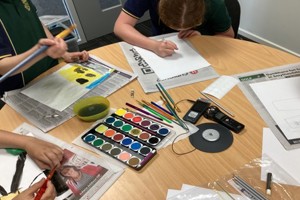What do students know about mental health and wellbeing?
26/05/2025
Developed by paediatricians, educators, psychologists, researchers, and teachers, the Mental Health in Primary Schools (MHiPS) initiative upskills experienced teachers to become Mental Health and Wellbeing Leaders. MHiPS aims to increase the capacity and capability of Victorian primary schools to support the mental health of their students.
In 2023, the MHiPS team conducted focus groups with 65 year 4 and 5 primary school students from 14 schools. The aim was to understand what they knew about mental health and wellbeing, and what resources and supports were available to them at school.
Why involve the perspectives of children in this project?
Using methodologies that capture children's perspectives is increasingly viewed as crucial for generating authentic, meaningful and actionable data to inform practice and policies that directly affect them. However, there is limited evidence for best practice in the participation and involvement of children in mental health research, particularly children under 12.
How were children involved?
Students were presented with a fictional scenario of a student experiencing difficulties at school. They were asked various questions about how the character might feel and what could be done to help that student.
‘How can you tell what the student is feeling?’
‘Who or where could that student go to if they needed help?’
Students shared their ideas and answers by drawing, painting or creating characters from paper, rocks or Play-Doh during group discussion and one-to-one conversations.


'Rockstars' were created by students to act out the scenario.
What did we find?
Students demonstrated knowledge around:
- Emotional literacy - including the ability to recognise different emotions, and understand and manage emotions through different strategies including distraction methods (e.g. telling a joke)
- Help-seeking - including providing peer support to others (e.g. ask if they're ok), and seeking support from various school staff (classroom teachers, yard duty teachers, wellbeing staff, principals, and education support staff).
They also identified that much of their knowledge came from the social emotional wellbeing curriculum delivered either by their classroom teacher or wellbeing staff. Students mentioned a range of programs including Respectful Relationships, Zones of Regulation, The Resilience Project and Smiling Mind.

